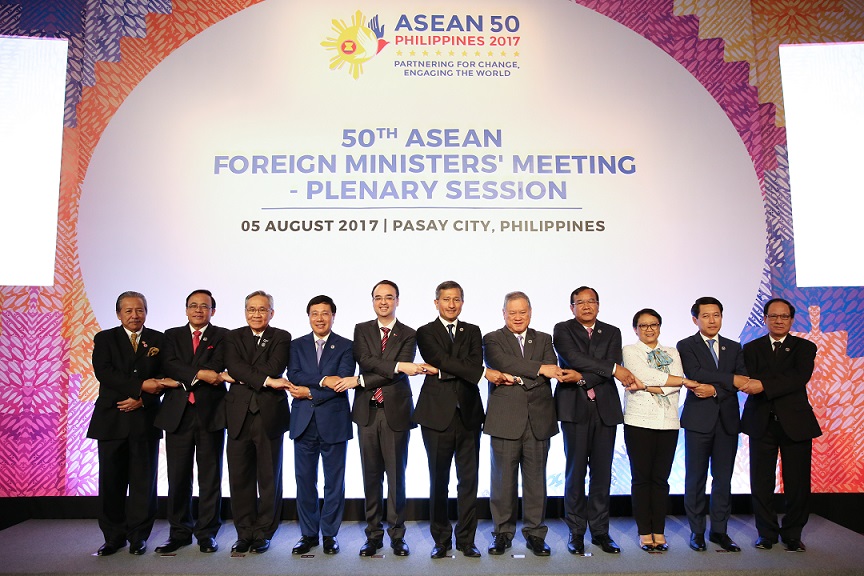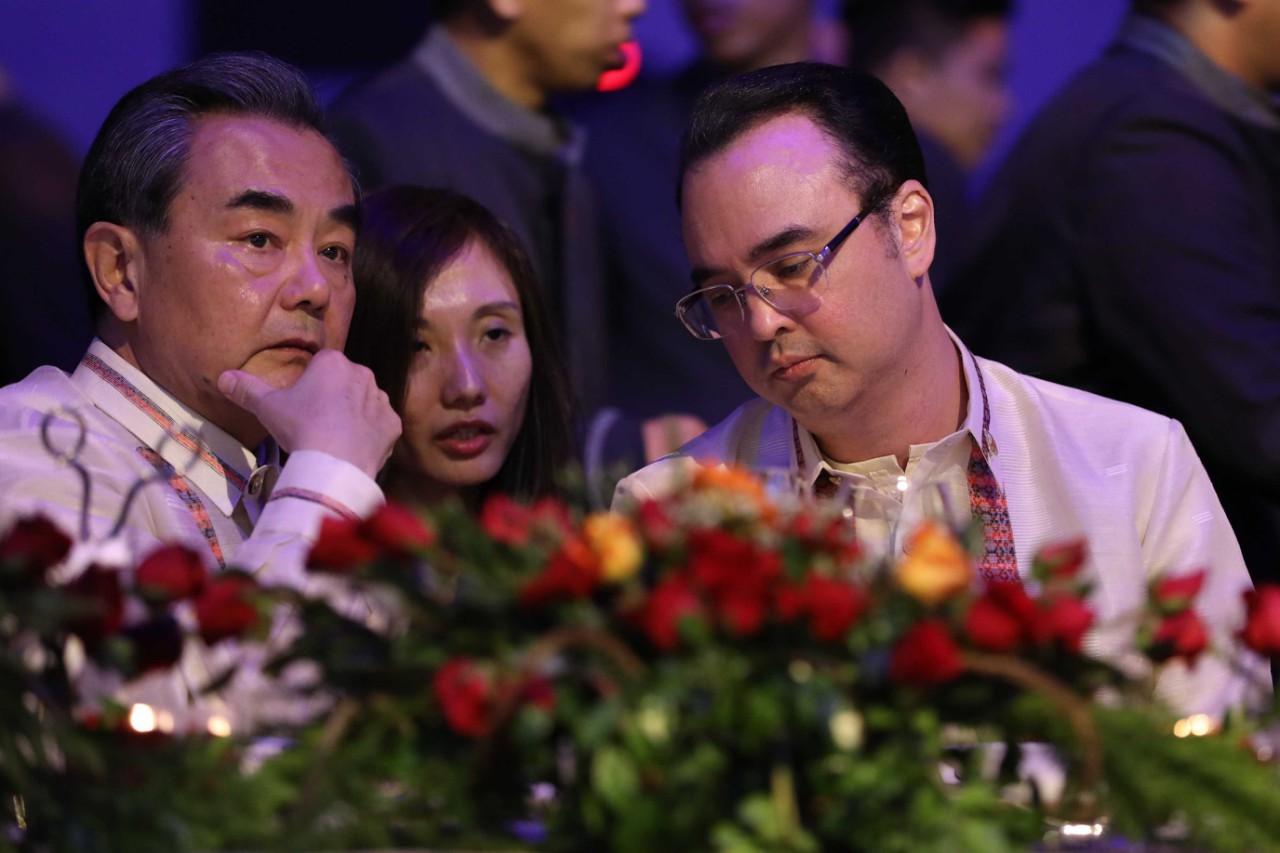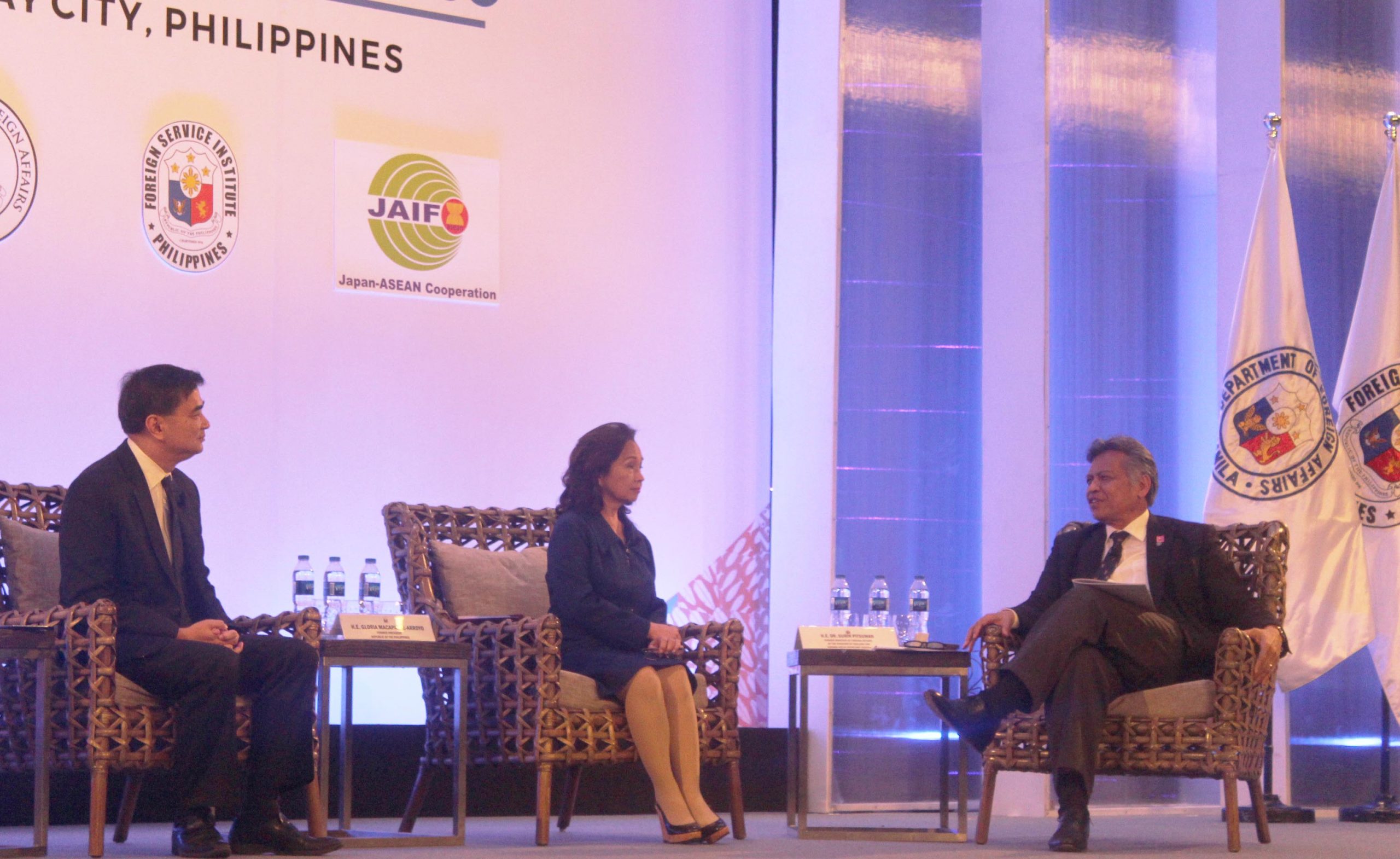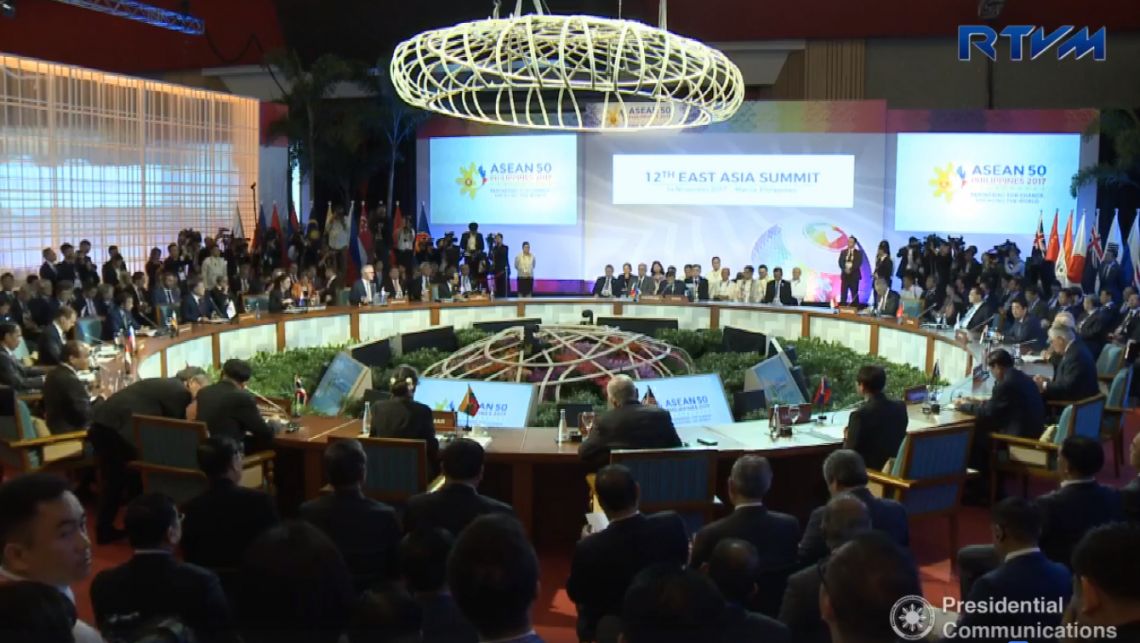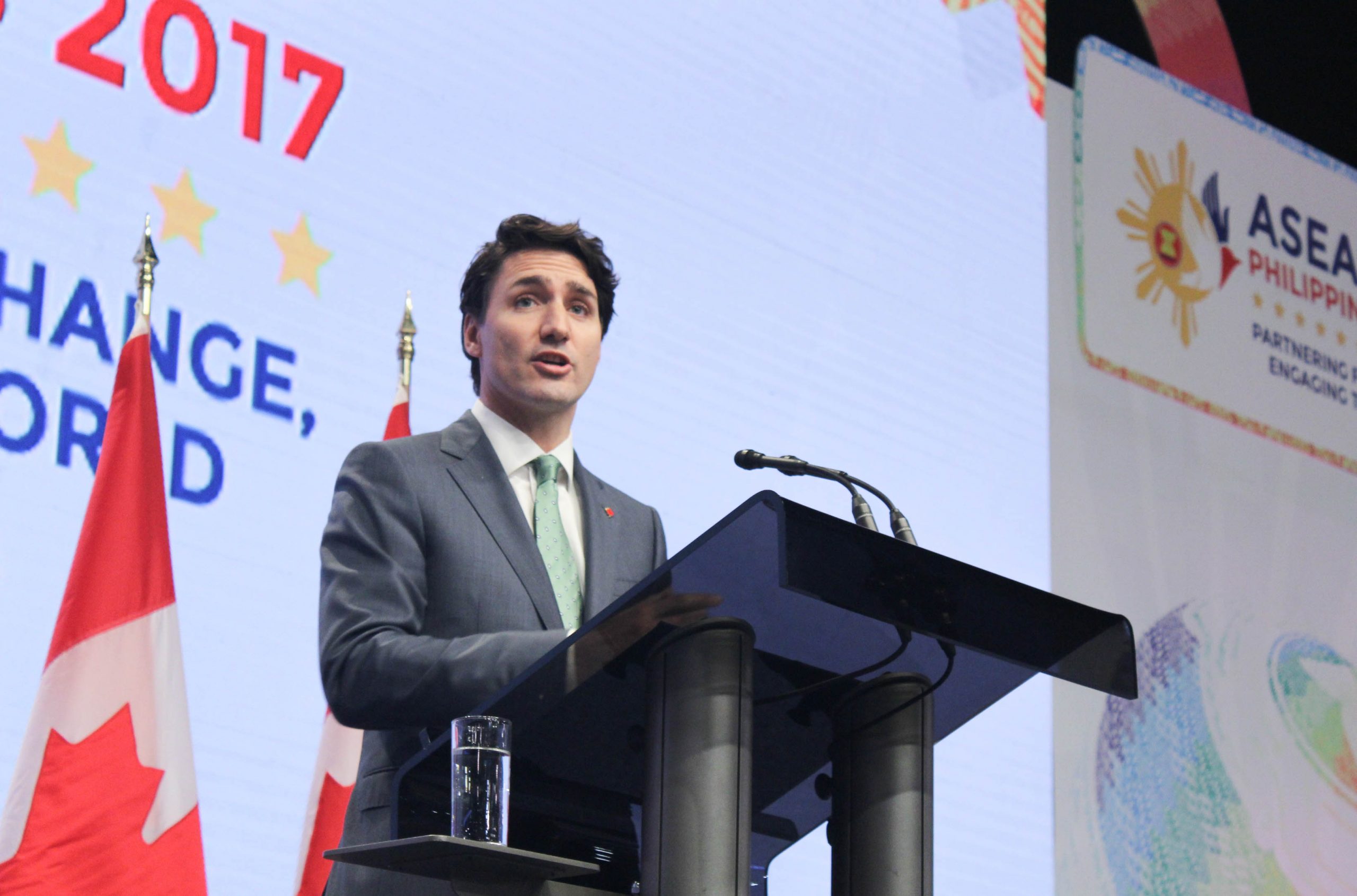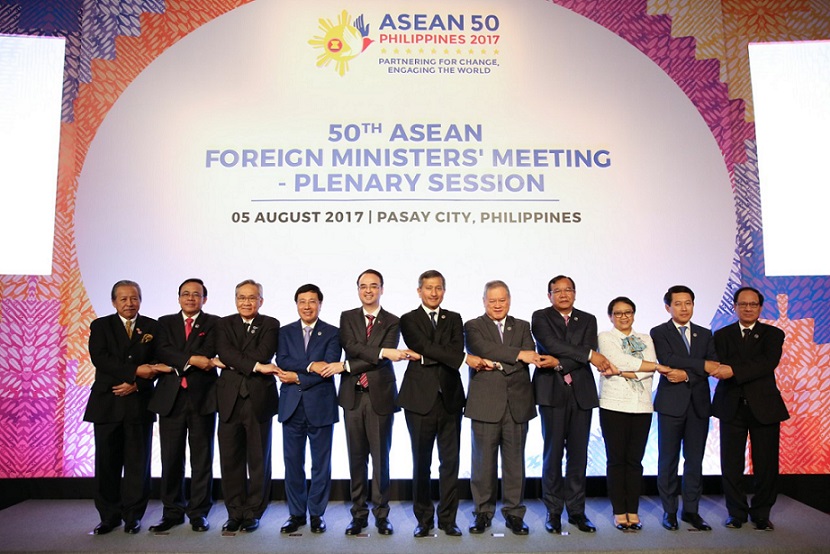
ASEAN Foreign Ministers Aug. 5, 2017. Photo from ASEAN2017.ph
After reading the Joint Communique of the 50th anniversary of ASEAN, together with other documents and accounts of meetings, three narratives come to mind.
First, a disturbing display of disunity among members, especially in the political/security pillar and particularly in the South China Sea/West Philippine Sea issue.
Second, a forgettable Philippine chairmanship of the golden anniversary of the Association.
Third, dominant display of Chinese diplomacy to promote and protect its national interests.
On the issue of Chinese actions in the South China Sea, ASEAN can only “take note” of the concerns expressed by some members.
Taking “note” in a communique or statement means nothing, a refuge among helpless negotiators, nonsense to seasoned diplomats. They know it despite public utterances of successful compromise. The phrase by “some members” is a giveaway of disagreement, which is compounded by the fact that the issuance of the communique was delayed by a day.
There is also a unique and unusual paragraph about welcoming to a new relations of harmony between ASEAN and China.
Reading between the lines of press briefings and stories of what transpired in meetings, one can verily detect the presence of the red dragon in the room. The words emanating from delegates, even their silence on some occasions, showed that ASEAN members think and breathe with China in mind.
The Philippines as chair should have set the theme of the discussions and dominate the proceedings of meetings as expected from a strong chairman. We dropped the ball in April and by the time August came, it was too late for a rebound. There should be no room to be too sensitive for what others would think. There is no such thing as a neutral chair. Chairmen always take advantage of the rare opportunity to protect and promote the advocacies of the country.
Secretary of Foreign Affairs Alan Peter Cayetano should explain why it is the Philippines which did not want Chinese actions in the South China Sea discussed, much more the Arbitral ruling. Unless this is fake news.Viva Vietnam and other members and ARF who are more forthcoming and forthright on the issue.
The Philippines has touted the COC by the end of the year as the landmark decision for which its chairmanship can be remembered. This is misplaced optimism, a forlorn hope.
The framework is at best a box of chocolates; one will not be able to see what’s inside until one opens the box. Already Foreign Minister Wang Yi has set conditions for a November consultations (only) not negotiations on the framework agreement. There are lessons to be learned before, during the negotiations and after COC.
These days, countries who are supposed to be superpowers and those who are not that super react to what China says or does not say or do. That’s foreign policy and diplomacy at their finest. It has mastered the art of economic diplomacy and fast to recognize that economic factors trump political considerations in international relations now. In the conduct of its foreign policy they are in a mission; others are in a crusade.
It is no wonder that President Xi Jinping in Davos recently said that China has no ambition (yet) to lead the world but if forced to do so by circumstances, it will be ready to do so.
ASEAN has reason to celebrate its achievements during the last 50 years. ASEAN, however, needs to strategize its role for the next 50. With the Philippines, ASEAN has resolved to engage the world. If ASEAN builds on its strength, if ASEAN gets out of its comfort zones, if ASEAN builds its own field of dreams, the world will come to us, will engage.
This would be a fitting resolution to mark its golden anniversary and look to the next fifty.
(The author is a veteran Philippine diplomat. He was the Philippine Permament Representative to the United Nations from May 2003 to February 2007. Prior to that, he was Foreign Affairs Undersecretary for Policy.)
